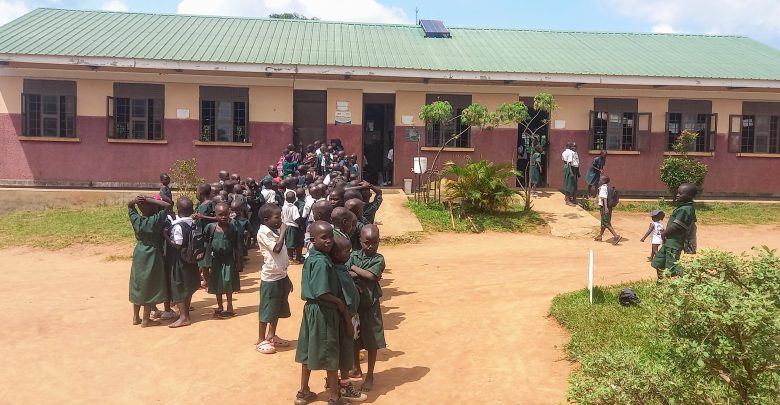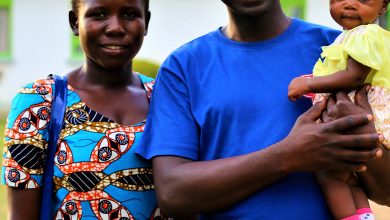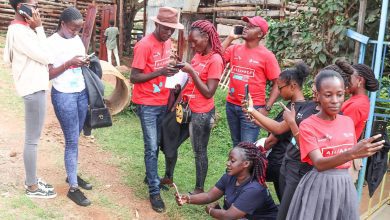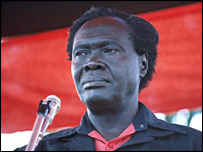
Education
UGANDA: OMORO DISTRICT EDUCATIONAL PERFORMANCE THE WORST IN THE REGION, SAYS SAVE THE CHILDREN REPORT
Lack of Facilities and School Dropout top Agweno Primary school education
OMORO DISTRICT, MONDAY, OCTOBER 7, 2024 – A new report by Save the Children reveals that educational performance in Omoro District is among the lowest in the region, with Agweno Primary School highlighting some of the most troubling challenges.
At the start of the 2024 school year, Agweno Primary School enrolled 514 pupils in the first term. However, by the third term, enrollment had dropped dramatically to just 212 students. The school’s Senior Education Women Teacher confirmed this decline, citing a range of issues affecting school attendance.
School Feeding Program as an Incentive
The school’s head teacher, Adongpiny Migrate, emphasized the need for a school feeding program similar to the one implemented in the Karamoja Sub Region. She suggested that such a program could encourage more children to attend school regularly and boost academic performance.
“Agweno Primary School needs a school feeding program to attract and retain pupils, which would act as an incentive for better educational outcomes,” said Adongpiny.
Persistent Educational Struggles
Agweno Primary School, founded in 2008 in the post-Lord’s Resistance Army (LRA) era, has struggled with poor academic results. Despite having a well-maintained football field and a clean environment, the school has produced only one first-grade student since its inception. The most recent of these poor results was shared by Gaspar Mwaka, the Omoro District Education Inspector, during his visit on October 7, 2024.
“I was informed that when the school asked students to pay their tuition fees at the start of the third term, many simply stopped coming to school,” said Mwaka. Head Teacher Adongpiny further explained that the Parents and Teachers Association (PTA) had mobilized parents to pay the required fees, but the effort failed to yield any significant results.
“Even after reassuring parents at the PTA meeting, attendance still dropped drastically,” Adongpiny noted. “We see parents walking their daughters to the garden for farm work instead of sending them to school.”
Teachers’ Accountability
Kilama Friday, Chairperson of the School Management Committee (SMC), argued that the poor performance could not be blamed solely on parents and students. He pointed out that some teachers were also neglecting their duties.
“There are teachers who spend their evenings in drinking joints and only show up at school when they feel like it,” Kilama said. He specifically named three teachers—Okello James, Richard Oloya, and Aldo Lawoko—as examples of those not fulfilling their professional responsibilities.
Kilama also criticized PTA members for failing to follow through with their responsibilities after being elected to administrative positions.
“During elections, everyone wanted to be elected, but now no one is showing up to do the work,” Kilama said. “This lack of commitment contributes to the school’s challenges.”
Parental Negligence and Labor Exploitation
PilimenaAkidi, Chairperson of the School Management Committee (SMC), placed the blame squarely on parents for not supporting their children’s education. She noted that, unlike in other parts of Uganda, where parents accompany their children to school, Agweno parents often send their children to work in the fields instead.
“Parents in Agweno use their children as laborers to weed soybeans, maize, and harvest crops, instead of prioritizing their education,” Akidi said.
Gender-Based Violence and Defilement Concerns
Nyeko Clarence, Community Development Officer (CDO) for Odek Sub County, warned that parents who do not send their children to school should face legal consequences. He also condemned local leaders who fail to enforce the education ordinance.
“In Odek, we have passed a by-law that requires parents to send their children to school, and those who don’t comply must face arrest,” Clarence stated. He also raised concerns about rising cases of defilement, attributing this to the prevalence of open bars and film viewing centers near schools.
“Defilement cases have increased, and many parents fail to follow up on these cases when suspects are arrested,” he added.
Police Officer Odong from Odek Sub County also issued a warning to parents who allow their children, especially girls, to wander into bars and film centers.
“Last year, seven pupils were defiled, and the suspects were not held accountable because their parents did not follow through on legal action,” Odong said.

Mildgrace Adong, a teacher at Agweno Primary School, highlighted the lack of basic facilities at the school as another barrier to education. The school lacks a dressing room for girls, and the latrines are overflowing, making it difficult for students, especially girls, to attend school regularly.
“At the beginning of this year, we had 514 pupils enrolled, but now only 212 are attending regularly. Many students miss school, only to show up at the end of the term to sit for exams. When asked, they claim they have the answers in their heads,” Adong said.
She also mentioned a particular case of a pupil, Marion, who was absent despite being sponsored by a local NGO, Dream NGO. Marion’s father, Mr. Joseph Moro, was unaware of his daughter’s absenteeism until the school brought it to his attention. He promised to investigate the matter.
Call for Action and Accountability
Francis Okello, Councilor for Social Welfare and Education in Odek Sub County, called on the community to take responsibility for the education of their children. He warned that the school would not tolerate criminal behavior, including the exploitation of children for labor or allowing them to be victims of abuse.
“We cannot condone criminal activities, especially the exploitation of the girl-child for defilement,” Okello said. “Parents must be held accountable for their children’s education. We are serious about enforcing the law.”
Elisvepth the Area Women Local Councilor III for Odek Sub County, also supported these calls, emphasizing that parents should lead by example and ensure their children attend school.
“Some parents in Agweno, particularly the Langi migrants in Lakim Village, allow their children to roam freely, which encourages other children to skip school,” she said.
District Education Inspector’s Response
Gaspar Mwaka, the Omoro District Education Inspector, expressed frustration with the situation, noting that some teachers’ poor performance may stem from frustration. He also emphasized the importance of parents’ involvement in their children’s education, from paying fees to reporting cases of abuse.
“The school’s poor performance is not just a matter of teachers or students; it is a community issue,” Mwaka said. He also highlighted that the school’s student-teacher ratio—one teacher for every 53 students—was part of the problem.
“Agweno Primary School is struggling, and without intervention, things will only get worse,” Mwaka warned.
The inspector also acknowledged that the proximity of a local disco, just 500 meters from the school, may be contributing to the decline in student attendance, especially among older pupils.





